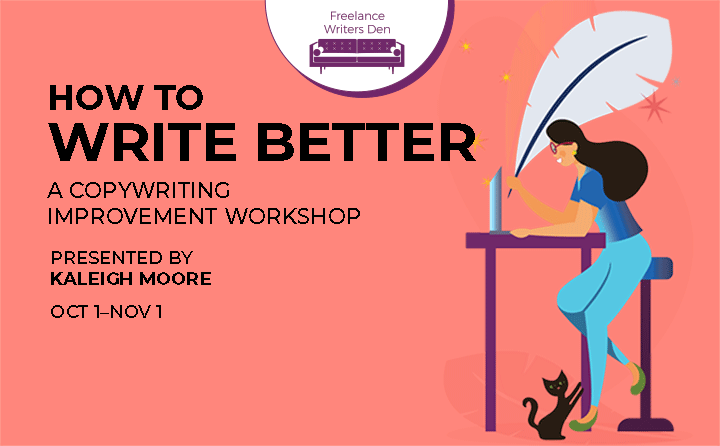Editor’s Note: This is a guest article by Austin Church.
Most writers have a love-hate relationship with money. To even broach the subject in my creative writing program would have been bad manners. Certain things are simply understood. Don’t end sentences with prepositions. Don’t admit to reading anything for pleasure other than literary fiction. Don’t talk about the green stuff.
There’s a problem with this gag order. Money is a part of our lives, whether we like it or not. We need it to live. We all have a relationship with money, and we have beliefs and attitudes about it that shape our behavior.
Therein lies the opportunity. As we examine those beliefs, we can upgrade the ones that aren’t serving us. We can turn a taboo into a tool.
Writers are particularly well-suited for this type of introspection. We already do harder things: writing is nothing if not a discipline.
So, with everything to gain, let’s take this two-part series of articles to look at three of the money scripts most common among writers, break them apart, and analyze them. You’ll find that raising your financial literacy is well worth the time and effort.
What are money scripts?
For those of you unfamiliar with the term, “money scripts” are our invisible, often subconscious beliefs and attitudes about money. Two financial psychologists, Ted Klontz and Brad Klontz, coined the term in 2011.
Along with two other researchers, they identified 72 money-related beliefs and organized them into 4 belief patterns: money avoidance, money worship, money status, and money vigilance.
Then, they asked 422 people to say how strongly they agreed with those beliefs, couched in statements like these:
- “I do not deserve money.”
- “Money would solve all my problems.”
- “I should save money, not spend it.”
- “Money is what gives life meaning.”
The resulting study published in The Journal of Financial Therapy found that what we believe about money has a significant influence on our income and net worth.
If you secretly believe you don’t deserve money, you won’t ask for a raise. Or you will undercharge freelance clients. Or you’ll spend when you should save.
If you believe money will solve all your problems, you’ll make the wrong sacrifices. You’ll spend all your time getting it. You’ll prioritize it above family, friends, and health. You’ll likely end up with more problems, not less.
Our money scripts shape decisions and actions, which in turn affect income and net worth. They affect our mental health, relationships, and even creativity, yet we writers can often be heard saying, “Money just isn’t that important.”
If we need money to live in modern society, does it make more sense to tell ourselves it’s not important or to proactively raise our financial literacy?
Where do money scripts come from?
Like other beliefs, we make money scripts with what we have on hand. Understanding those building materials will help us to unravel and reconstruct them. I’ll touch briefly on three places we acquire the stuff of belief: family, friends, and society at large.
Most families don’t have matter-of-fact conversations about money. Parents do have good intentions; 94% believe that children should start learning about personal finances by the age of 12. Be that as it may, 64% of young adults report feeling surprised at how little they know about personal finance. They don’t feel prepared to manage their money.
Though the pandemic has compelled more parents to talk with their kids about money, the trend for decades has been writers entering adulthood without the skills we need to make money, manage it, or talk about it.
Nature abhors a vacuum, so what we don’t learn through direct instruction we must learn through observation and osmosis. For example, your younger selves may have overheard your parents talking about money. Without fully understanding the content of the conversations, you absorbed the emotional undertones: angry or happy, afraid or confident, anxious or hopeful.
Your broader community played a part too. Once you hear enough friends make fun of the entitled rich girl, the lesson becomes clear: Affluence can lead to ostracism. If you’ve got money, hide it. Or perhaps the butt of your friends’ jokes were the kids in worn-out clothes who rolled up in the beater minivan. Point taken: Even if you’re in financial straits, don’t show it. Keep up appearances. Keep up with the Joneses.
We also fill in the gaps with truisms we inherit from the societies that shape us:
- Money is the root of all evil.
- Money doesn’t grow on trees.
- Another day, another.
- An honest day’s work.
We take such sayings at face value, and we believe their opposites too. You have to work hard for money, and if making the money didn’t take too long and wasn’t particularly hard, then the person doing the making must be somehow greedy, dishonest, or exploitative.
When we’re young, we lack the critical thinking and self-confidence to challenge such assumptions and hunt for counterexamples of people who create wealth not through hurting but through helping:
- Some artists, writers, and athletes earn millions by entertaining millions.
- Some companies make millions by solving problems for millions.
- Some investors make good bets and let compound interest work its magic for decades.
Predatory people, companies, and investors exist. Ethical ones do too. For every Bernie Madoff, there’s a Warren Buffett. Money is a tool. It isn’t something to be ashamed of unless you use it to do shameful things.
Knowing that is one thing. Believing it is another thing entirely.
Green dollar bills may be physical, but the concept of money carries the cargo of our desires and anxieties. It symbolizes safety, stability, and freedom; fun, health, and belonging. We’re afraid to make too much. We’re afraid to keep too much. Money becomes a place of deep shame for many of us.
When you mix a general lack of education with conflicting opinions and advice found online and in books, no wonder we writers end up feeling caught in a pinball machine. No wonder psychologists study financial trauma!
Which money scripts are most common to writers?
Thankfully, we can develop a healthy relationship with money. What that process has looked like for me is sussing out what I believe and exploring what else might be truer.
I’m going to share three money scripts many writers have (#2 and #3 are coming on Friday). Perhaps none of them will ring a bell for you. However, if you find yourself squirming in your seat, remember, you can upgrade them to ones that serve you better.
Money Script #1 – “Writers don’t make a lot of money.”
Many writers believe that writers don’t make a lot of money. Writing is a labor of love.
I’m under no illusions: When I finish my novel, I don’t expect it to sit on shelves among the greats. Were I to keep at it, maybe just maybe, I’d write a truly exceptional story. But do I have to starve in the meantime?
Is barely scraping by a foregone conclusion? Do 100% of full-time writers have nagging financial problems? Must full-time writers take up the mantle of the starving artist and labor in relative poverty and obscurity and content ourselves with the pleasures of self-expression and craftsmanship?
That depends on how you define “full-time writer.” A 2018 Authors Guild’s survey of 5,067 professional writers revealed that full-time authors earned a median income of $20,300 from all book-related activities, including book earnings, speaking engagements, book reviewing, and teaching. The starving author trope has some basis in reality.
However, let’s not let that trope off the hook just yet. Being an author isn’t the only option available to writers. According to Indeed.com, copywriters in the United States make $52,744 a year, on average, or 260% more than authors.
I have consistently earned six figures as a freelancer writer, and most of the freelance writers I coach end up making at least $5,000 a month. Some go on to crack six figures.
Right now, writers have more income opportunities than at any time in human history. We can create paid newsletters on Substack or ConvertKit. We can attract 1,000 true fans (a la Kevin Kelley’s brilliantly simple math and rationale), use Patreon to handle the logistics, and make $100K. We can earn a little writing on Medium and a lot more self-publishing on Kindle.
Is it realistic to believe you can make a comfortable living writing whatever books you want to write whenever you want to write them? No.
Is it realistic to believe that you can get paid really well to write? Yes.
It is possible to earn a comfortable living as a full-time writer, assuming that you acquire not only the hard skills of the craft but also an aggregate of business skills and habits. Professional writers must contend with time management and project management. We must learn sales and negotiation. We must learn how to make money and manage it well.
Make no mistake: writing is hard work. It comes with no guarantees. Some writers will struggle to make ends meet. Some will earn a comfortable living. Some will become quite wealthy.
Writers fall all across the money and wealth spectrum, and the same can be said of attorneys and bakers, civil servants and software developers.
How much money we have has less to do with our choice of the craft of writing and more to do with our willingness to learn the requisite skills. Learning how to make money is as distinct from writing as writing is from bird watching. And whether your money comes from writing fiction or working at a bank, you still have to learn how to manage it and grow it.
Writers are not doomed to financial hardship. The words “starving” and “writer” need not snap together like two magnets. Writing is not inherently a non-lucrative enterprise. In fact, writing can pay very, very well. The money you make depends as much upon your money scripts and business skills as your vocabulary and style; as much on your habits as your aesthetic.
Writers have agency. We can choose a fatalistic belief in starving writers. We can also choose to change our minds and our habits and join the “ordinary folks” Morgan Housel talks about in The Psychology of Money: “Ordinary folks with no financial education can be wealthy if they have a handful of behavioral skills that have nothing to do with formal measures of intelligence.”
Austin is a writer, brand consultant, and business coach for freelancers. He lives with his wife Megan and their three children in Knoxville, Tennessee. You can get his 6-video course about making money as a freelancer from anywhere at AustinLChurch.com.










